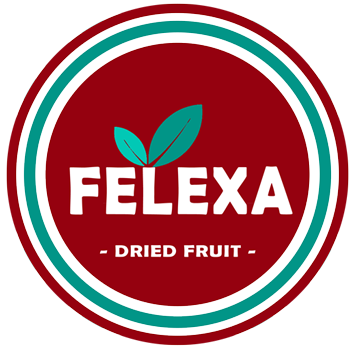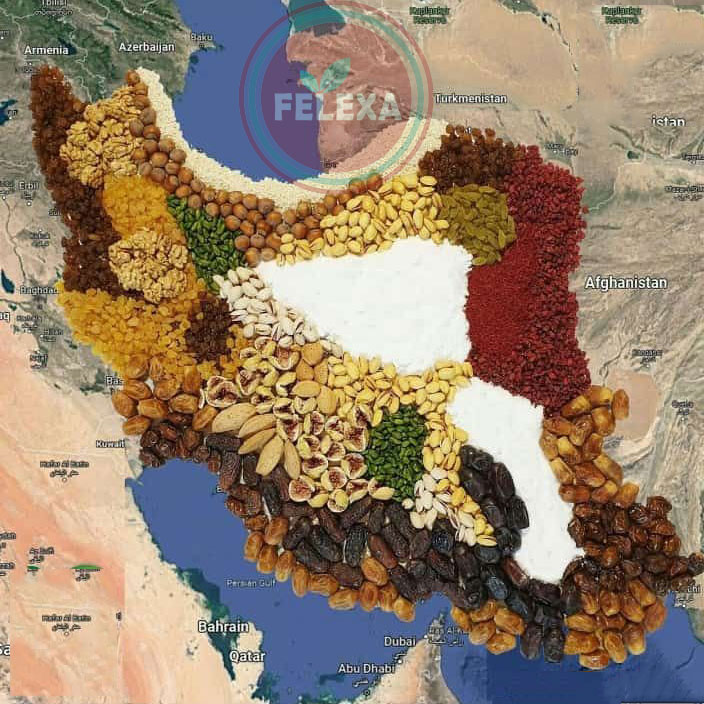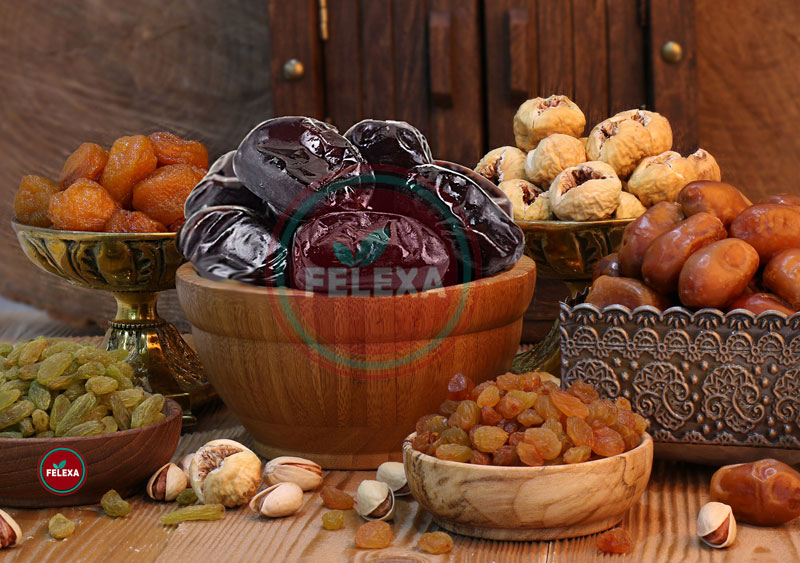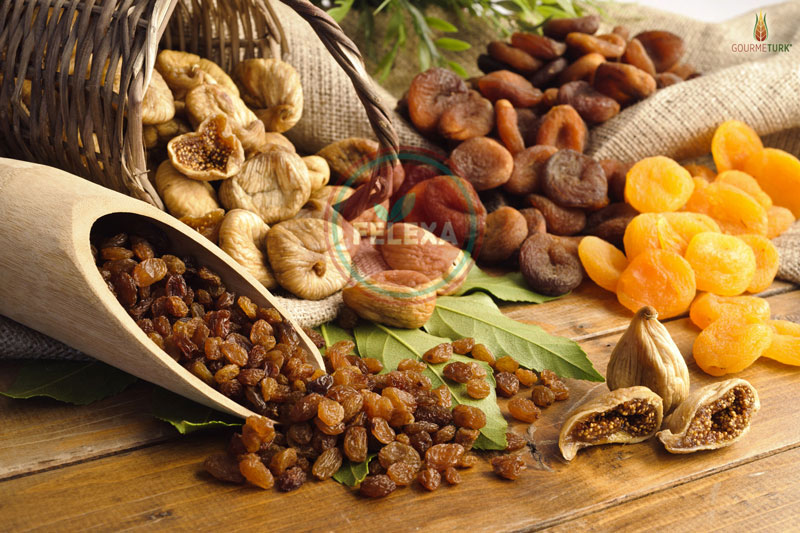As the demand for dried fruits continues to rise globally, importers are faced with the decision of sourcing from various countries. Two significant players in the dried fruit market are Iran and Turkey, both renowned for their high-quality produce. Felexa, a Persian dried fruit exporter, aims to provide insights into the pros and cons of importing dried fruits from these countries.
Iran: A Land of Tradition and Quality
Iran has a long history of cultivating and exporting dried fruits, known for their exceptional taste and quality. Persian dried fruits, such as pistachios, dates, raisins, and figs, are sought after worldwide for their natural sweetness and rich flavor profiles.
Pros of importing dried fruits from Iran:
- Quality: Iran’s dry climate and fertile soil create optimal conditions for growing premium-quality fruits.
- Variety: Iran offers a diverse range of dried fruits, including unique varieties like Iranian saffron-infused raisins and sun-dried figs.
- Tradition: With centuries of experience in fruit cultivation and preservation, Iranian producers adhere to traditional methods, ensuring authenticity and flavor.
- Competitive Pricing: Iran’s lower production costs often translate into competitive pricing for imported dried fruits.
Cons of importing dried fruits from Iran:
- Trade Restrictions: Political tensions and international sanctions can sometimes hinder trade and affect supply chains.
- Seasonal Variability: Like any agricultural product, dried fruit availability can fluctuate depending on weather conditions and harvest yields.
Examples of Iranian Dried Fruit Products:
- Iranian Sayer Dates: Known for their soft texture and caramel-like flavor, Sayer dates are a popular choice for snacking and baking.
- Iranian Dried Figs: Sun-dried Iranian figs boast a sweet, honey-like taste and a tender, chewy texture, perfect for adding to salads or enjoying as a healthy snack.
- Iranian Golden Raisins: These plump, golden raisins are prized for their natural sweetness and are often used in baking, cooking, or enjoyed on their own.
Türkiye: A Hub of Mediterranean Delights
Turkey is another major player in the dried fruit industry, offering a wide array of products cultivated in its fertile lands. Turkish dried fruits, such as apricots, figs, mulberries, and nuts, are cherished for their distinct flavors and nutritional benefits.
Pros of importing dried fruits from Turkey:
- Geographical Advantage: Turkey’s strategic location between Europe and Asia makes it a convenient hub for exporting dried fruits to international markets.
- Mediterranean Climate: Turkey’s Mediterranean climate provides ideal conditions for growing fruits like apricots and figs, resulting in superior taste and quality.
- Modern Infrastructure: Turkey boasts well-developed infrastructure and trade networks, facilitating efficient transportation and logistics for exported goods.
- Certifications and Standards: Turkish producers often adhere to international quality standards and certifications, ensuring product safety and compliance.
Cons of importing dried fruits from Turkey:
- Price Fluctuations: Prices of Turkish dried fruits may fluctuate depending on factors such as global demand, currency exchange rates, and local market conditions.
- Competition: Turkey faces stiff competition from other Mediterranean countries in the dried fruit market, which can affect pricing and market share.
- Environmental Challenges: Like many agricultural regions, Turkey may face challenges related to climate change, water scarcity, and pest control, which could impact crop yields.
Examples of Turkish Dried Fruit Products:
- Turkish Apricots: Renowned for their vibrant orange color and sweet, tangy flavor, Turkish apricots are a versatile ingredient used in various culinary applications.
- Turkish Mulberries: These chewy, antioxidant-rich berries are prized for their sweet, slightly tart flavor and are often enjoyed as a healthy snack or added to granola and yogurt.
- Turkish Antep Pistachios: Known for their distinctive flavor and vibrant green color, Turkish pistachios are a popular choice for snacking and culinary use.
In conclusion, both Iran and Turkey offer a rich selection of high-quality dried fruits with unique flavors and characteristics. Global importers must consider various factors such as product quality, pricing, logistical considerations, and market demand when making sourcing decisions. By carefully evaluating the pros and cons of importing from each country, importers can make informed choices that meet their business objectives and satisfy the preferences of their customers worldwide. Professional dry fruit producers and exporters like Felexa can accompany importers and answer their requests, needs and questions correctly.



